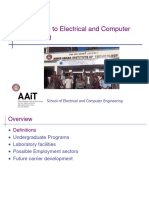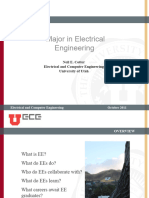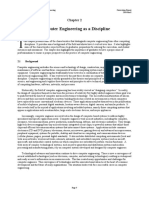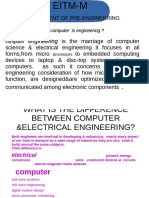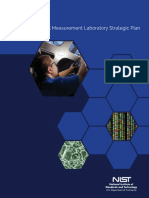0% found this document useful (0 votes)
54 views30 pagesElectrical and Computer Engineering
Electrical and Computer Engineering (ECE) is a multidisciplinary field that integrates electrical engineering and computer science to design and develop electronic systems. It encompasses various subfields including communications, computer, control, electronics, and power engineering, along with a broad scope that covers computer systems, networks, and artificial intelligence. The document also outlines the historical development, technical and professional skills required, challenges faced, and job opportunities available in the field.
Uploaded by
olivsayinCopyright
© © All Rights Reserved
We take content rights seriously. If you suspect this is your content, claim it here.
Available Formats
Download as PDF, TXT or read online on Scribd
0% found this document useful (0 votes)
54 views30 pagesElectrical and Computer Engineering
Electrical and Computer Engineering (ECE) is a multidisciplinary field that integrates electrical engineering and computer science to design and develop electronic systems. It encompasses various subfields including communications, computer, control, electronics, and power engineering, along with a broad scope that covers computer systems, networks, and artificial intelligence. The document also outlines the historical development, technical and professional skills required, challenges faced, and job opportunities available in the field.
Uploaded by
olivsayinCopyright
© © All Rights Reserved
We take content rights seriously. If you suspect this is your content, claim it here.
Available Formats
Download as PDF, TXT or read online on Scribd
/ 30













